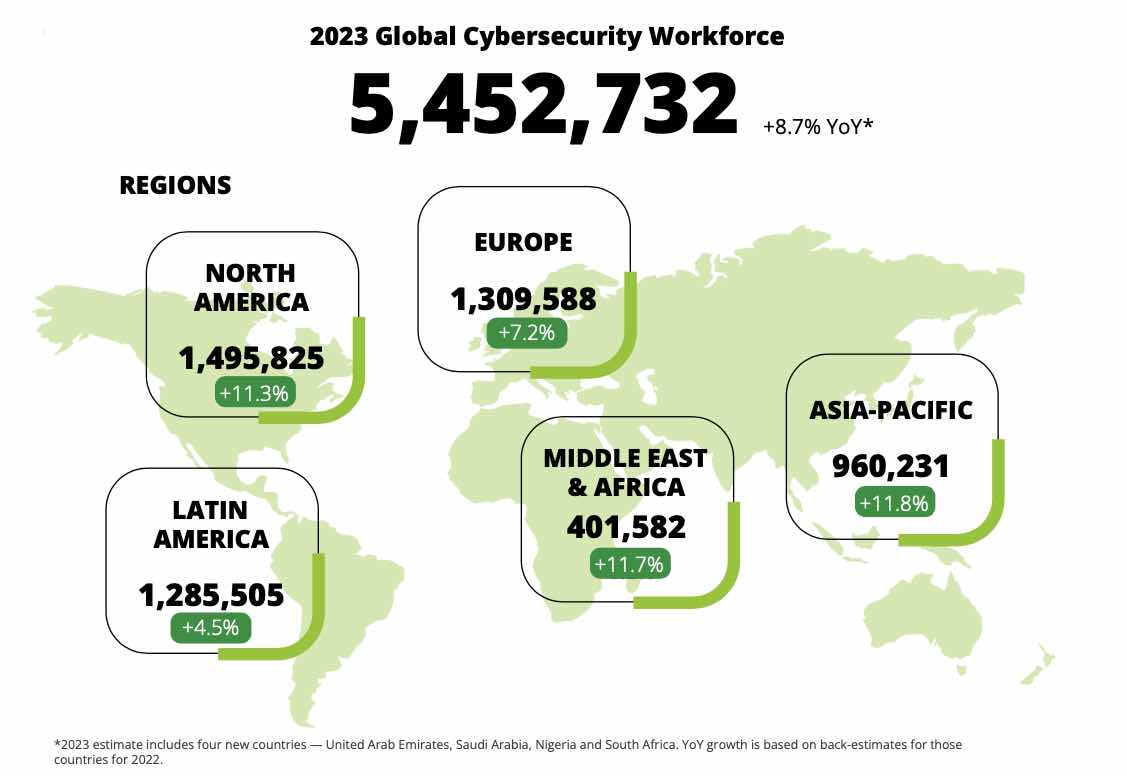
November 1, 2023 at 05:37PM
The cybersecurity industry is experiencing a shortage of workers and tighter budgets, leading to overworked and stressed cybersecurity professionals. Companies are not prioritizing hiring for cybersecurity roles due to economic uncertainty, resulting in a workforce gap. Layoffs, job insecurity, and reduced job satisfaction are commonplace. Solutions to budget-constrained cybersecurity include process automation, intelligent solutions, and managed services. The shortage of cybersecurity workers currently stands at 4 million globally, and companies need to focus on developing skills and attracting workers at the entry level. Retention is also a challenge due to better opportunities and compensation elsewhere. Budget cutbacks and layoffs are common, affecting various industries. Filling employment gaps may require reaching out to nontraditional populations and broadening the scope of skills and qualifications sought in cybersecurity professionals.
The meeting notes highlight the current challenges faced by the cybersecurity discipline. Companies are experiencing a shortage of cybersecurity workers and are dealing with tighter security budgets. This combination has resulted in overworked and stressed cybersecurity specialists. The report states that there is a shortfall of 522,000 cybersecurity workers in North America alone.
Due to economic uncertainty, companies are not prioritizing filling cybersecurity roles and are implementing hiring freezes, budget cuts, or layoffs. This workforce gap is putting more pressure on cybersecurity professionals and impacting job satisfaction. Security teams that have experienced or expect layoffs have reported lower levels of satisfaction compared to those that have not.
The economic conditions globally are also affecting budgets, making it difficult to recruit cybersecurity professionals economically. Job security concerns have increased among cybersecurity workers, which is a departure from earlier this year when a survey found that only 10% of non-technical business leaders planned to reduce cybersecurity staffing.
To address budget-constrained cybersecurity, CISOs need to consider the skill shortage and adopt strategies such as process automation, investing in intelligent solutions like AI and advanced analytics, and outsourcing tasks to managed services providers. These actions should be part of an enterprise security strategy.
The shortage of cybersecurity workers has been a longstanding issue, with the workforce report stating that 4 million cybersecurity workers are currently needed. Companies need to focus on getting more workers into the pipeline at the entry level and commit to their skill development through training to bridge the skills gap in the long term.
Retaining workers is also a challenge in the industry. Adequate compensation, strong cybersecurity culture, career development opportunities, training, and working with skilled teams are factors that contribute to workers staying in their jobs.
Budget cutbacks have impacted around 47% of companies, leading to hiring freezes, budget cuts, and layoffs within cybersecurity teams. Industries such as entertainment and media, construction, and security software and hardware makers have seen the most layoffs.
To fill employment gaps, it may be necessary to reach out to nontraditional populations and look beyond traditional IT workers. Critical thinking skills and a learning mindset should be prioritized when recruiting for cybersecurity positions. College degrees should not be seen as a requirement, and nontraditional places and people should also be considered.
Overall, the meeting notes highlight the urgency and complexity of the challenges faced by the cybersecurity discipline, with a shortage of workers, budget constraints, and job security concerns among professionals. Finding solutions requires strategic approaches to skill development, retention, and recruitment.